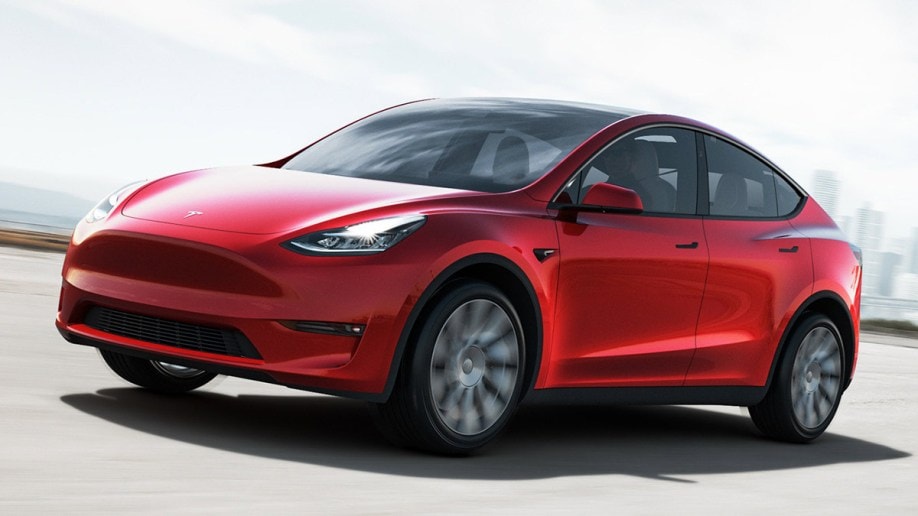
The IRS, however, has brought some clarity to the process. The agency this week released a list of new cars that may qualify for the tax credit.
Yes, “may.” Unfortunately, the question still isn’t simple.
Income limits apply — rebates are limited to individuals reporting adjusted gross incomes of $150,000 or less on taxes, $225,000 for those filing as head of household, and $300,000 for joint filers.
So do price caps, which can mean some examples of a particular make and model qualify while others don’t.
The new incentives restrict qualifying vehicles to low-emissions trucks, SUVs, and vans with manufacturer’s suggested retail prices (MSRPs) of up to $80,000 and cars up to $55,000.
So, a Ford F-150 Lightning Pro, with its $55,974 sticker price, may qualify for the rebate. An F-150 Lightning Platinum, with its $96,874 sticker, will not. And a mid-level Lightning Lariat (starting price $74,474) may, depending on whether you select options that keep the price under that $80,000 line.
The law also requires that cars be assembled in North America, which rules out some popular vehicles. Hyundai and Kia, for instance, currently build their electric cars only in Asia. The companies, however, have joined a list of automakers moving some production to the U.S. to ensure their customers can qualify for the rebate.
Technocratic Rules Produce Some Weird Cases
The list, for the most part, looks like industry analysts expected it to look. But applying a law requires government agencies to define its terms.
Occasionally, their definitions don’t match what industries expect.
Tesla, for instance, markets its tall, bubble-shaped Model Y as an SUV. Tesla sells it as a 5-seater with two rows of seats or a 7-seater with three. The government agrees that it’s an SUV – if a buyer orders the third row of seats. A 2-row model, according to the IRS, is a sedan.
Since the Model Y has a starting price of $65,990, 7-seat models qualify under the $80,000 SUV price cap. But 5-seat models do not fit under the $55,000 sedan price limit.
Some Manufacturers Turning In Their Homework Late
The agency’s list isn’t complete. Several manufacturers haven’t provided the IRS with enough information for it to make a determination on their products.
At press time, Hyundai, Jaguar, Kia, Mazda, Mercedes-Benz, Mitsubishi, Subaru, and Toyota were all left off the list with the statement: This manufacturer has entered into a written agreement with us to become a “qualified manufacturer” but hasn’t yet submitted a list of specific makes and models that are eligible.
The note ends by asking users to check back later for updated information.
That may be frustrating for buyers, as there’s a brief window when certain vehicles might be eligible for the rebate.
Rules Changing Again in March
A new law that passed last summer made the tax credit rules a moving target. New rules will require manufacturers to obtain a percentage of critical minerals used in batteries from the U.S. or its trade partners. That requirement will phase in over time – starting at 40% this year and laddering up to 100% by 2029.
The Treasury Department was scheduled to enact those rules on Jan. 1. But the department has delayed them as it works on writing the guidelines that tell manufacturers what the law means. It now expects to start enforcing the rules in March.
When that happens, the list of eligible vehicles will likely shrink.
Qualifying Cars:
The list is likely to change as more manufacturers submit their data. At press time, the following vehicles qualify for the tax credit:
| Model Year | Vehicle | MSRP Limit |
| 2023 | Audi Q5 TFSI e Quattro PHEV | $80,000 |
| 2021-2023 | BMW 330e | $55,000 |
| 2021-2023 | BMW X5 eDrive 45e | $80,000 |
| 2022-2023 | Ford Escape PHEV | $80,000 |
| 2022-2023 | Ford E-Transit | $80,000 |
| 2022-2023 | Ford F-150 Lightning | $80,000 |
| 2022-2023 | Ford Mustang Mach-E | $55,000 |
| 2022-2023 | Lincoln Aviator Grand Touring | $80,000 |
| 2022-2023 | Lincoln Corsair Grand Touring | $55,000 |
| 2022-2023 | Chevrolet Bolt EV | $55,000 |
| 2022-2023 | Chevrolet Bolt EUV | $55,000 |
| 2022-2023 | Cadillac Lyriq | $55,000 |
| 2021-2023 | Nissan Leaf | $55,000 |
| 2022-2023 | Rivian R1S | $80,000 |
| 2022-2023 | Rivian R1T | $80,000 |
| 2022-2023 | Chrysler Pacifica PHEV | $80,000 |
| 2022-2023 | Jeep Wrangler 4xe | $80,000 |
| 2022-2023 | Jeep Grand Cherokee 4xe | $80,000 |
| 2022-2023 | Tesla Model 3 | $55,000 |
| 2022-2023 | Tesla Model Y 7-Seat Variant | $80,000 |
| 2023 | Volkswagen ID.4 | $55,000 |
| 2022 | Volvo S60 PHEV | $55,000 |







